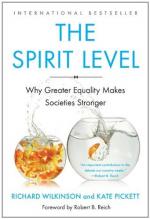|
This section contains 2,899 words (approx. 10 pages at 300 words per page) |

|
Equality is a key concept in both ethics and politics, one that influences personal and public self-understandings, and provides guidelines for relations between individuals and for state action. Insofar as scientific knowledge and technological change can either diminish or increase inequalities, and scientific research influences the understanding of what it means to be human, issues of equality exercise important ethical influences on the uses of science and technology. The ideal of equality also presents a special challenge within science and engineering, insofar as peers are supposed to be treated as equals at the same time that expertise makes claims to special influence.
Background
It is an empirical given that human beings are in many respects unequal. They are of different shapes, sizes, and sex; different genetic endowments; and different abilities. From the earliest age, some children manifest gregariousness, others pugnacity, some pleasant dispositions, others dullness and apathy. Take...
|
This section contains 2,899 words (approx. 10 pages at 300 words per page) |

|


